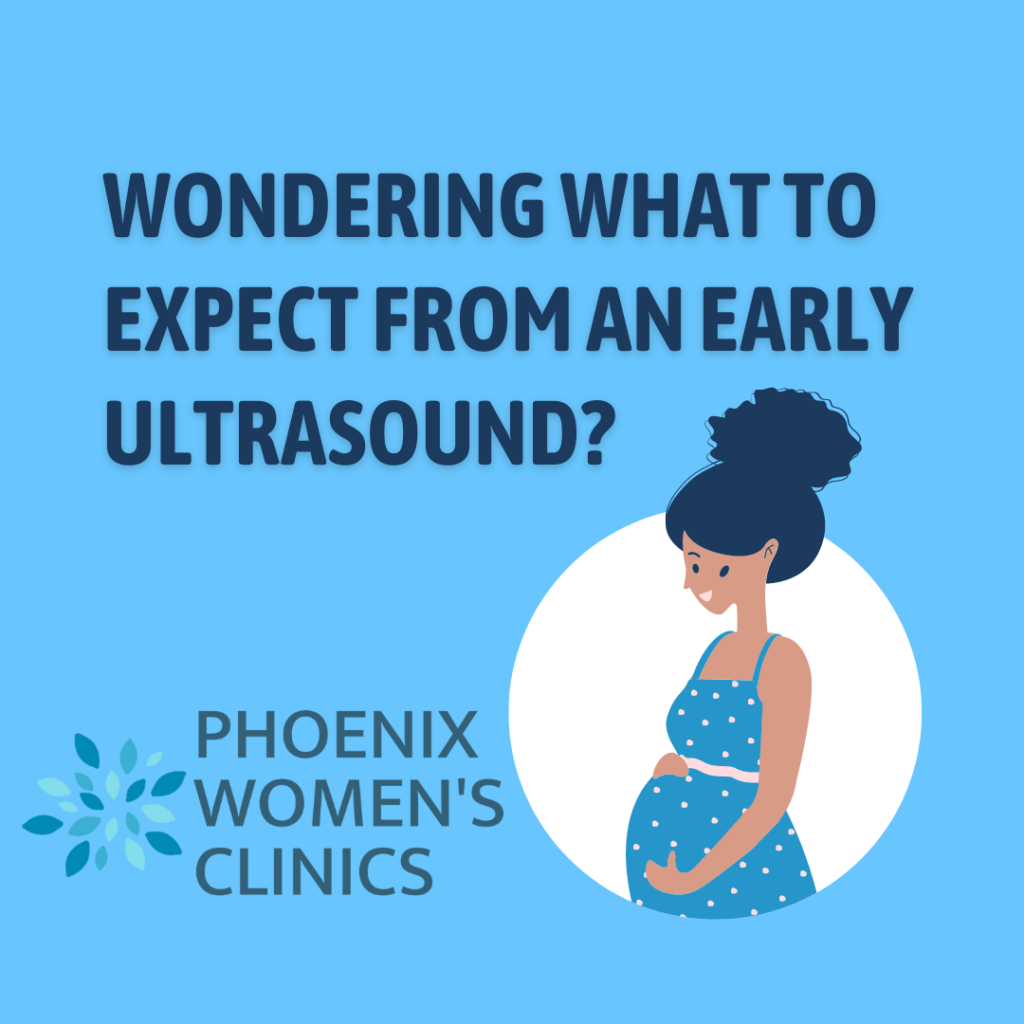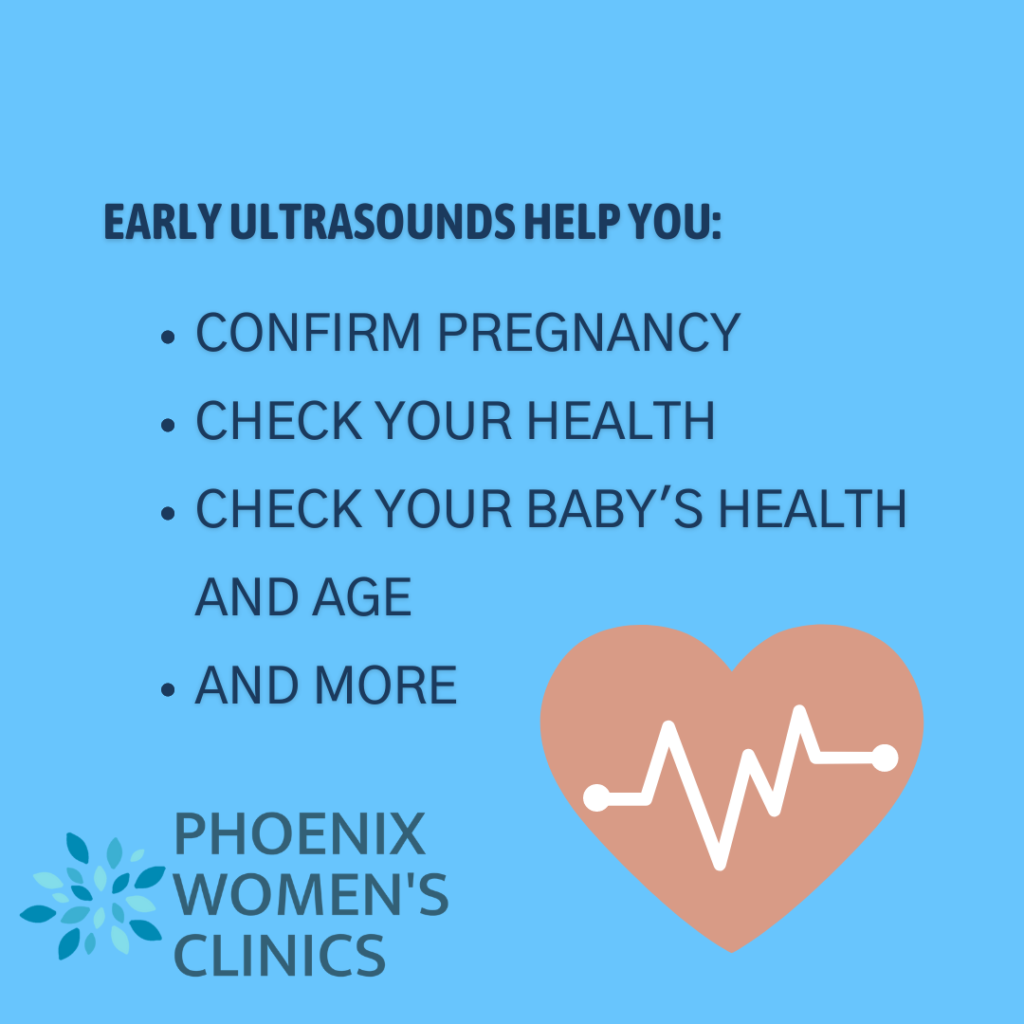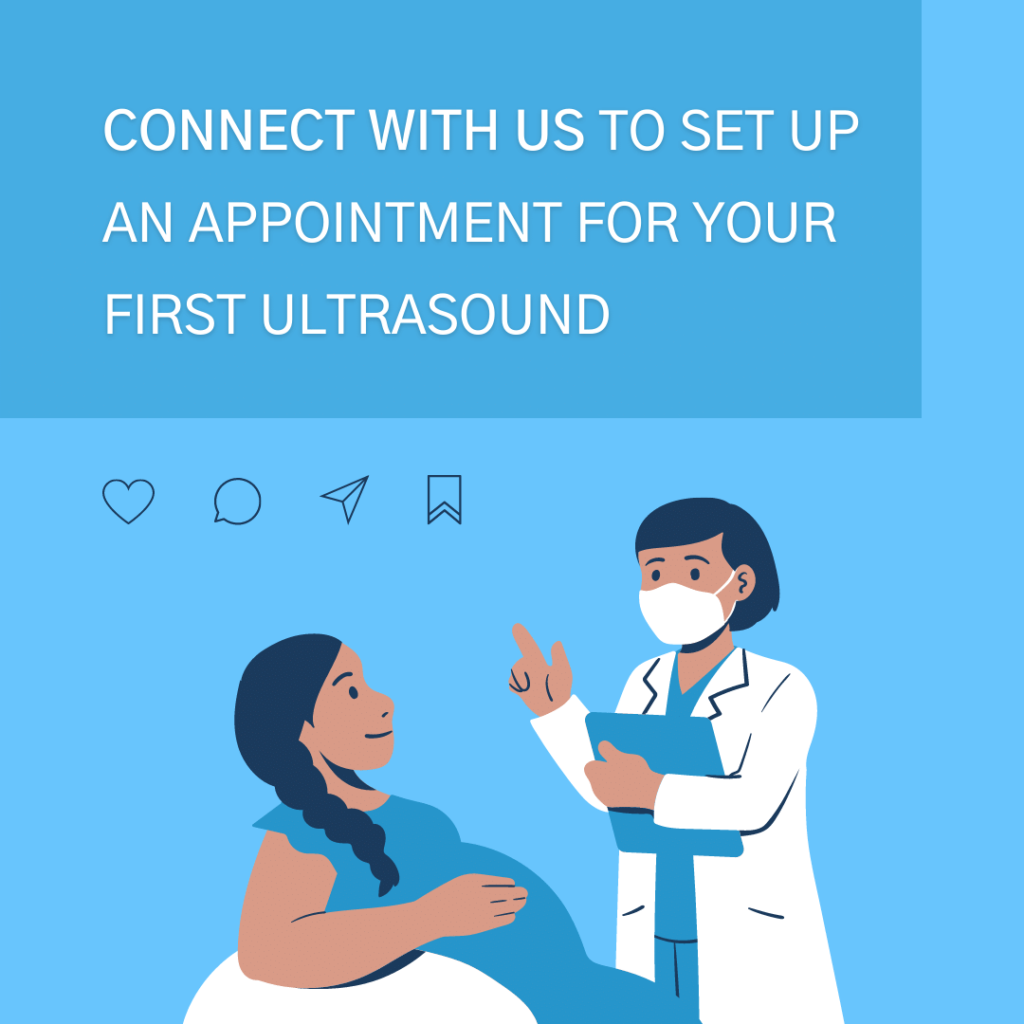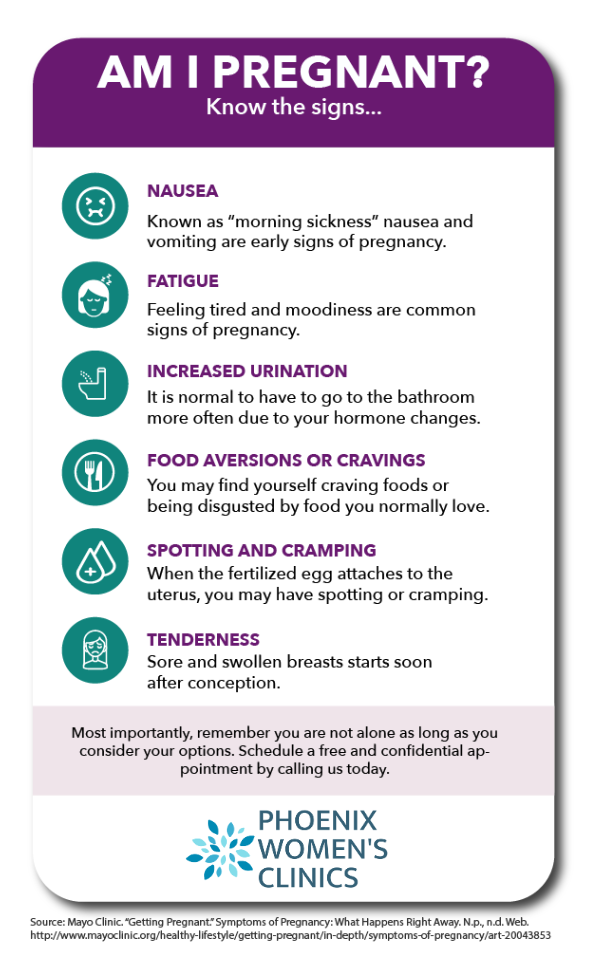Many pregnant women thinking about getting an early ultrasound have questions. We want to answer your questions so you know what to expect.
A few things to know about early ultrasound scans:
- Ultrasounds at Phoenix Women’s Clinic are $30, EVEN IF YOU DO NOT HAVE INSURANCE.
- Ultrasounds are safe
- We can help you prepare – and you do not have to go alone
- How early ultrasounds work and what they look like
- Common reasons for an early ultrasound
- You do not need insurance. We are here to support you. We keep your information completely confidential and do not profit from any decision you make.
If you have more questions after reading this article, we would love to talk with you. Schedule an appointment with us, below.

Are You Pregnant?
Find out for sure with a free test at Phoenix Women’s Clinic
Find Out Today!
ULTRASOUNDS AT NAME OF CENTER ARE FREE, EVEN IF YOU DO NOT HAVE INSURANCE.
Thanks to our generous donors, we are able to provide you with a free ultrasound. You do not need insurance. We provide this as a service to you and your unborn baby. Our pregnancy center is a nonprofit organization, and we are here to support you. We keep your information completely confidential and do not profit from any decision you make. For more information about pregnancy centers, click here. (1)
WHEN DONE BY A CERTIFIED HEALTH CARE PROVIDER, ULTRASOUNDS ARE SAFE FOR YOU AND YOUR BABY.
When making a decision about your pregnancy we recommend an ultrasound to get confirmation of the dating of the pregnancy, placement of pregnancy, and viability (is the pregnancy progressing). This is also a great opportunity to have all your questions answered by a practitioner. The practitioner will review your health history and address your concerns.



PREPARING FOR YOUR ULTRASOUND.
We also want you to know that you do not have to come to your appointment alone. If you would like, you may bring your husband or boyfriend, a parent, or another supporter. It may be helpful for them to be aware of how things are developing with your pregnancy as well.
HOW EARLY ULTRASOUNDS WORK AND WHAT THEY LOOK LIKE.
A fetal ultrasound, also called a sonogram, produces images of your baby in the womb by using high-frequency sound waves.
Early ultrasounds are done in the first 14 weeks of pregnancy and show images of the baby’s early development stages. (3) Routine ultrasound images are typically black and white. They are usually somewhat fuzzy but are detailed enough to show us what we need to know about fetal growth. For this reason, it may not be easy for you to identify exactly what you are seeing on the screen. We’ll help you understand what we’re seeing and what it means. We will also give you the option of keeping a few printed images from the scan.
There are a few things you will notice when you look at the ultrasound screen. You will see a white image of your baby and umbilical cord, against a dark background. Your doctor will learn a lot of important information about your developing baby by observing these images.
For example, a 7-week old baby is just the size of a blueberry, but already has developed limb buds, outer ears, and nearly complete eyelids. At this stage, your baby also has an increased heart rate since the last week and cells that are developing muscles and a spinal column. (5)
We share more details about what we can learn together after we cover the two types of ultrasounds.
EARLY ULTRASOUNDS HELP YOU:
- Confirm Pregnancy
- Confirm Viability Of Pregnancy
- Determine Gestational Age
- And More
Vaginal Ultrasounds
Another type of ultrasound is transvaginal ultrasound. These are usually done for the early stages of pregnancy, or when the images from a transabdominal ultrasound are not quite clear enough. We do not provide this type of ultrasound, but it may be helpful to know about it because it is common.
For this procedure, your health care provider will likely ask you to change into a gown and undress from the waist down. Next, you will lie down on an examining table and place your feet in stirrups.
For this process, your health care provider will use a small, slender scanner. The scanner is shaped like a wand. It is covered with a plastic sheath and lubricated before being placed into your vagina. The process is also about 20 minutes long and may cause some discomfort, but shouldn’t be painful. (3)
Both types of early ultrasounds are for early pregnancy, in your first trimester. To learn more about additional ultrasounds in the second trimester or third trimester of pregnancy, click here. (7)
COMMON REASONS FOR AN EARLY ULTRASOUND.
One of the most common reasons for an early ultrasound is to confirm pregnancy. Other reasons include checking for more than one baby, and to determine your baby’s gestational age, viability, and location. Gestational age estimates the weeks of gestation to determine your baby’s due date.
Location is something we will look for, because in certain cases a baby may be developing outside the main cavity of the uterus. This is called an ectopic pregnancy. Most ectopic pregnancies are in the fallopian tube and you can learn more here.



LIMITS OF EARLY ULTRASOUND
Early limited ultrasound cannot determine your baby’s sex or diagnose abnormalities.






















